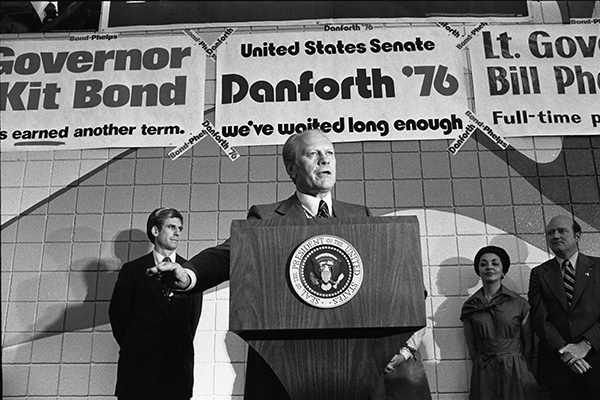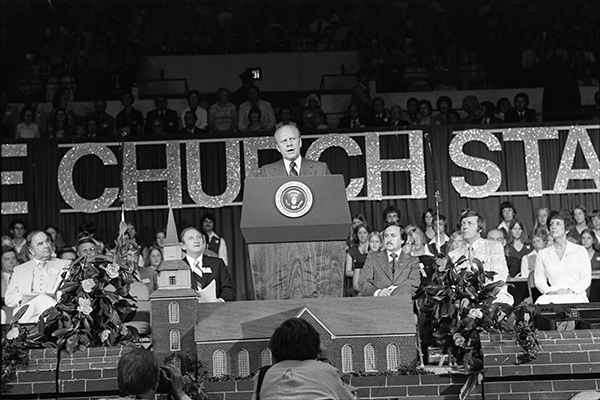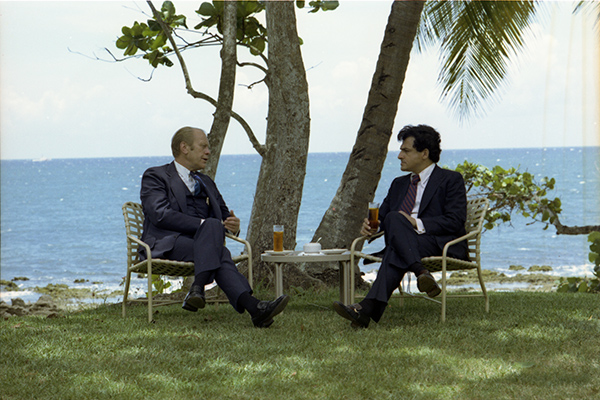This timeline charts Gerald Ford's path in the 1976 election, from competing for the Republican nomination in the primaries to his fight against Jimmy Carter in the general election. Follow along to learn more about the key moments in his campaign.
Primaries: Montana, Rhode Island, South Dakota
Ford wins Rhode Island
Reagan wins Montana, South Dakota
New Jersey to Ohio
Campaign Stops: Newark, Patterson ... Cleveland, Cincinnati

President Ford at the dedication of the Great Falls of the Passaic River, Patterson, NJ.
Ohio
Campaign Stops: Cincinnati, Middletown, Springfield, Lima (?), Findlay, Bowling Green, Toledo

President Ford greets workers on a campaign trip, Cincinnati, OH.
Primaries: California, New Jersey, Ohio
Reagan wins California
Ford wins New Jersey, Ohio
Missouri
Campaign Stop: Springfield

President Ford’s campaign address in Springfield, MO.
Virginia
Campaign Stop: Norfolk

President Ford addresses the Southern Baptist Convention, Norfolk, VA.
Indiana
Campaign Stop: Indianapolis

President Ford addresses the US Jaycees Convention in Indianapolis, IN.
Puerto Rico
Campaign Stops: San Juan, Durado Beach

President Ford and Gov. Rafael Hernandez at Colon Dorado Beach, Puerto Rico.